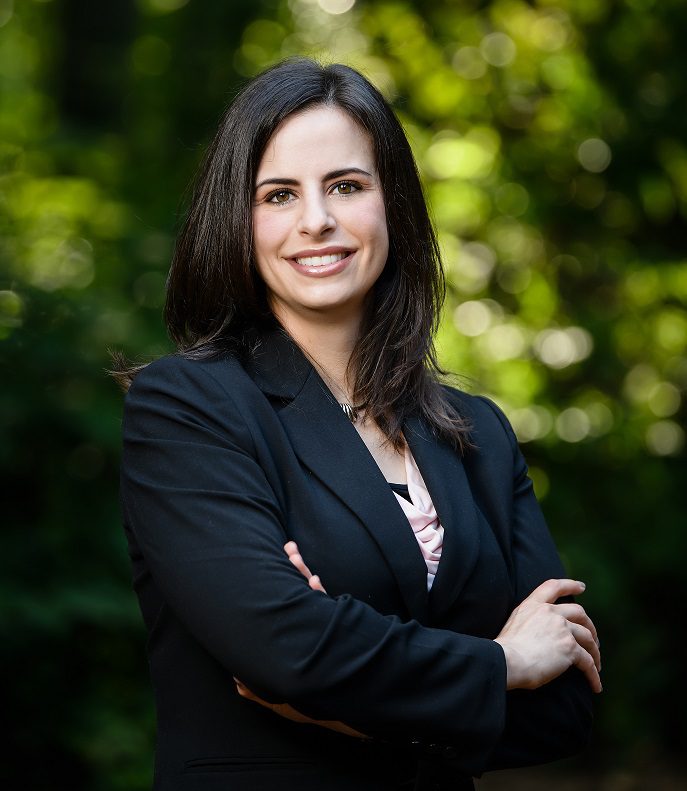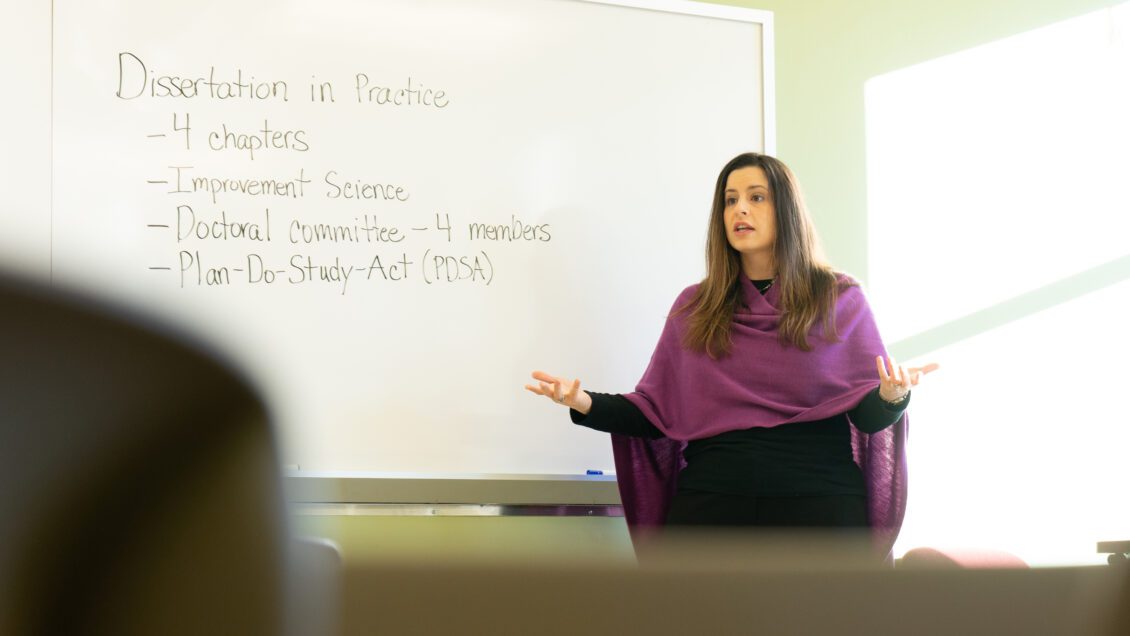Noelle Paufler serves as an assistant professor in the Department of Educational and Organizational Leadership Development, where she teaches and advises doctoral students in the Ed.D. in education systems improvement science. Paufler also serves as a co-director of the LEADERS Center of Excellence, which is designed to positively affect rural and high-poverty schools with higher-than-average teacher turnover.
Paufler started her career in education as a high school teacher in the Phoenix metropolitan area teaching world history and AP U.S. history. She has also worked in district administration as a research and evaluation coordinator in an office of accountability. In addition to her formal education, both of these K-12 experiences profoundly impacted how she thinks of herself as a teacher.
She sees her role in higher education as one of service; she wants to support doctoral students in the important work they do every day for children in South Carolina schools. We caught up with Paufler to explore her teaching philosophy, how being a doctoral advisee has influenced her advising and what she enjoys doing outside of Clemson University.
What is your teaching philosophy?
I believe that a teacher’s primary role is to remove barriers for students that otherwise might impede their academic, social and emotional development and–perhaps more importantly–negatively impact their lifelong relationship with learning.

Why do you love teaching?
To me, teaching is both an opportunity and a responsibility to learn alongside my students. Teaching offers me opportunities to facilitate, inquire, encourage and critique in ways that hopefully help my students deepen their understanding and develop their skills. At the same time, teaching requires a certain level of responsibility from me to continuously develop personally and professionally.
Like my students, I am also a learner. This means I, too, should continuously look for ways to sharpen my expertise, challenge my own beliefs and assumptions and apply innovative approaches to the work I do. The Japanese term kaizen, meaning “good change” or more commonly translated as “continuous improvement,” resonates with me. The goal for myself as a teacher is the same one that I have for my students—always reflect on ways to improve and then put that plan into action.
When did you know the field of education was for you?
Even though I had always loved learning, I did not give much thoughtful consideration to the education profession at first. I chose a college major that I loved–history–and planned to go to law school. After a law internship and an eclectic mix of other jobs, which included selling cars and wrapping gifts at a department store, I soon realized that I did not want to sell anything for a living. Instead, I decided to pursue a career in education, hoping to help ensure others had opportunities to love learning as much as I did.
Name an educator that inspired you to teach.
Although I did not see myself as a future teacher at the time, I always knew how my favorite teachers made me feel when I was a student in their classroom. I felt a sense of intrigue, curiosity, enthusiasm and comfort that allowed me to explore a subject, learn about new ideas, ask questions and find my voice.
I vividly remember sitting in the classroom of one such teacher, Ms. Barbara Craghan, my 11th grade English teacher at St. Francis Xavier High School. As part of a unit on King Arthur, she had designed a lesson that involved reading multiple texts depicting the same scene written by different authors.
Even if Arthurian legends were not your first choice of reading material, her enthusiasm was contagious. She challenged us to read closely, think critically and share our ideas. No question was too big or too small. When I later realized that I was called to be a teacher, memories of lessons like Ms. Craghan’s shaped my ideas about how I wanted students to feel in my classroom not only about the subject but also about themselves as learners.
What is the most rewarding and most challenging aspect of teaching for you?
Advising doctoral students is among the most rewarding aspects of being a faculty member for me. At its best, writing a dissertation is a rewarding, albeit protracted experience. Even then, the dissertation process is often challenging and even overwhelming at times. In my own experience and for many of my students, pursuing a doctorate while working full time in a school district adds to a plate already filled with myriad responsibilities. My experience as a doctoral advisee was second to none with ample encouragement and support and a dose of accountability mixed in when needed. My hope as a doctoral advisor is to pay it forward.
What do you like about the College of Education?
This is an exciting time to be a part of the College of Education at Clemson. I work with wonderful colleagues and together we have opportunities to support our students in ways that help them grow as educators and leaders in their communities. I believe our work matters and that inspires me as a teacher.
What do you enjoy doing when you are not teaching?
I enjoy spending time with my family. We love our weekend routine, which often includes sleeping in late, making pancakes and reading for fun.
Get in touch and we will connect you with the author or another expert.
Or email us at news@clemson.edu

